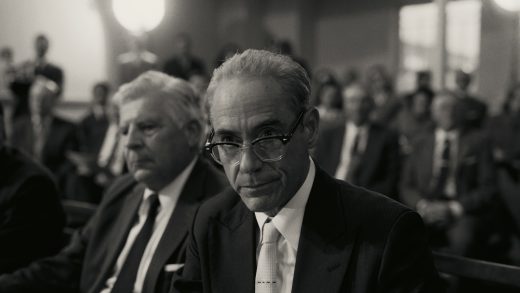Is living forever a blessing or a curse?
Immortality is a subject of fascination in literature, and for good reason. Who doesn’t fantasize, at least once, about defeating death? Oscar Wilde certainly did in 1890, when he wrote The Picture of Dorian Gray; the story of a man who could never get old, as long as his portrait kept showing his age. But this fantasy is more complicated than it might appear. Defeating death means an eternity on this perilous earth. We don’t want to die, but that doesn’t mean we want to live forever. In 1975, Natalie Babbit examined the contradiction in Tuck Everlasting, the quintessential children’s tale about the dangers of immortality. And the theme has continued to appear in more modern literature as contemporary authors explore the questions that arise in conjunction with the very human desire to live forever. If nothing else, it certainly makes for an interesting story.
If you’re looking for a book about living forever, you don’t have to head straight to fantasy section of the library. Vampires are not the only characters in literature blessed with an eternal life.
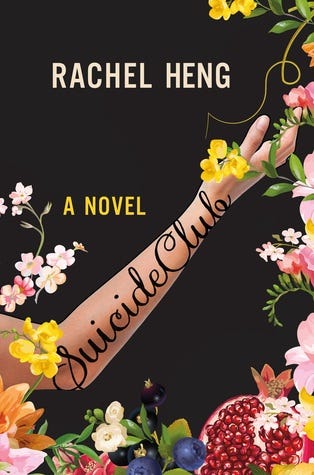
The Suicide Club by Rachel Heng
Heng’s dystopian novel imagines a world in which the cultural obsession with healthy living has become entrenched in the law — where helpful tips for wellness have become government directives. This reimagined world is uncomfortably close to our own world; saturated with advertisements for sugar-free, gluten-free foods, and social media sites advocating for stress-free, happy lifestyles. However, in The Suicide Club, the stakes are raised, and this healthy lifestyle can actually result in immortality, which begs the question: is it worth it?
What if You Could Live Forever?
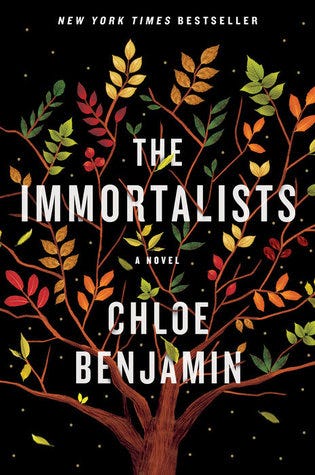
The Immortalists by Chloe Benjamin
Populating numerous ‘best novels of 2018’ lists, The Immortalists asks the question that humans have been contemplating since the days of ancient Greek tragedies; is our life determined by fate or do we have free will? In this novel, four siblings seem to think the former. They decide to visit a seer and discover the date of their deaths, and the stories that unfold thereafter offer an exploration into the minds of those who already know about their own mortality and who seek to escape it.
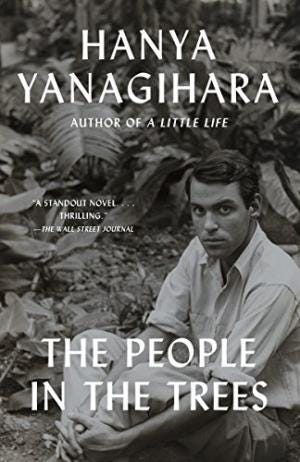
The People in the Trees by Hanya Yanagihara
The author of the beloved tearjerker, A Little Life, wrote her debut about a medical researcher so obsessed with immortality that he devoted and risked his own life to finding the antidote to aging. The novel is based on the true story of Daniel Carleton Gajdusek, a controversial figure in the scientific community. He was the winner of the Nobel Prize for Medicine and Physiology in 1976, revered for his philanthropic custom of adopting children from the South Pacific in order to give them a chance at a better life, but was later accused of pedophilia. Yanagihara’s novel imagines the life of this researcher in a morally ambiguous way, using the effective plot device of getting into the mind of the monster to learn about his motivations. Is finding the key to eternal life, and then sharing it with the rest of humanity, a redemption for the unforgivable things that the protagonist does along the way?
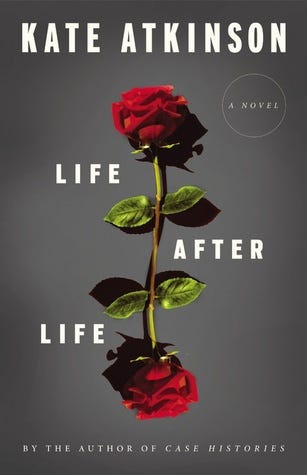
Life After Life by Kate Atkinson
In Life After Life, Atkinson paints the eternal life in a unique way. Rather than consciously being awakened again and again after death, Ursula lives out multiple timelines, unaware of her own immortality. When one timeline ends, we go back to the beginning of her life and watch it unfold in another way — and when that one ends, we go back again, and again. Unlike Rachel, in Eternal Life, Ursula does not tire so easily because she doesn’t have vivid memories of each of her lifetimes. This novel explores another question that haunts the human condition, the ‘Sliding Door’ question; how would my life turn out if I had done this or that differently?
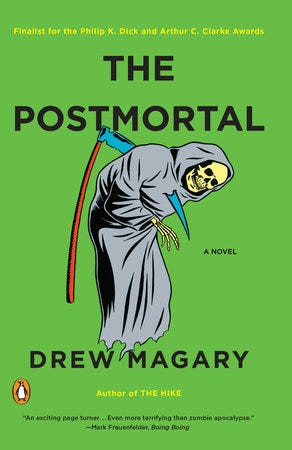
The Postmortal by Drew Magary
Set in the year 2019, eight years after it was published, this novel uses satire and sci-fi to warn its readers about the perils of discovering the cure for aging. In Magary’s utopian-turned-dystopian world, it’s not just one or two characters who can live forever, but everyone. However, discovering the cure for aging doesn’t necessarily mean that one can’t die from any other fatal means. And it certainly doesn’t mean that the world will be a better place. The human population will sky rocket, resulting in all sorts of problems. And the couples that took vows of staying together forever didn’t really think forever meant literal eternity.
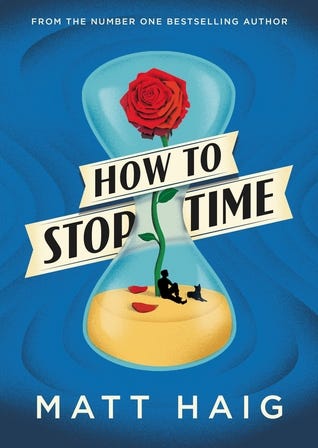
How to Stop Time by Matt Haig
In How to Stop Time, we see another instance of immortality as a curse rather than a blessing, though Haig’s rendition of the eternal life is only about 900 years long. In this world, Haig divides the human population in two; Albatrosses, who have a rare disease that allows them to live for nine centuries, and Mayflies, the mortal people. The novel follows one Albatross in particular, Tom Hazard, whose exceptionally long lifespan has given him the opportunity to meet some of the most important people in literary history. I can’t imagine how living forever could be a curse if it means that I could have worked at the Globe under Shakespeare’s tutelage or had a drink with the Fitzgeralds, but it’s true that there is more to the story.
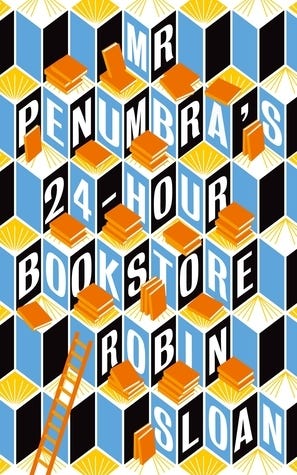
Mr. Penumbra’s 24 Hour Bookstore by Robin Sloan
As the former manager for Twitter, Robin Sloan is a novelist with insider knowledge about the digital world and the culture that surrounds it. He pulls from this knowledge in his book, exploring the terrifying competition between analog and digital; old fashioned print material and increasingly complex, modern technology. The protagonist, Clay, gets a job at an independent bookstore owned by a mysterious man who is clearly keeping secrets among his stacks. Using his own expertise with contemporary technology, Clay is pitted against a group that is devoted to old fashioned research techniques. And the result of the competition? Immortality.
Robin Sloan Recommends Five Books That Aren’t By Men
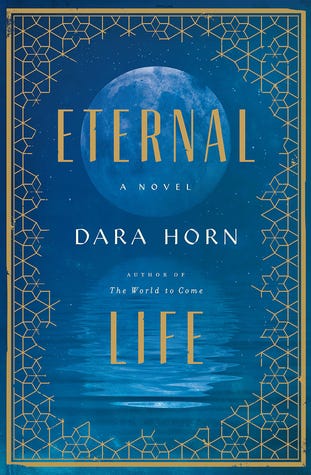
Eternal Life by Dara Horn
Horn’s novel follows Rachel, a woman ‘blessed’ with eternal life. In this take on immortality, it is the consciousness, not necessarily the body, that lives forever. When we imagine an immortal person, we tend to think of it as one body and one soul continuing on forever. But for Rachel, immortality consists of living a full life — youth, adulthood, aging, and death — over and over, ad infinitum. When she dies, she simply comes back to life as an 18-year-old and is forced to do it all over again; forced to endure the heartbreaks, the grief, and the loss. The story of this woman seems not unlike the fate of Sisyphus, who is famously doomed to roll a boulder up a hill over and over and over…and over; just to watch it roll back down to the bottom each and every time.

8 Books About Immortality was originally published in Electric Literature on Medium, where people are continuing the conversation by highlighting and responding to this story.
Source : 8 Books About Immortality


